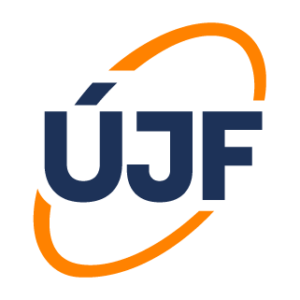
Ústav jaderné fyziky AV ČR / Nuclear Physics Institute of the Czech Academy of Sciences
[English version below]
O nás
Ústav jaderné fyziky AV ČR, v. v. i., provádí výzkum v široké oblasti jaderné a částicové fyziky, jak experimentální, tak teoretické a současně aplikované.
Experimentálně jsou studovány zejména vlastnosti jaderné hmoty ve srážkách těžkých iontů při středních a vysokých energiích, jaderné reakce významné pro astrofyziku nebo jadernou energetiku, rozpady beta atomových jader včetně problému hmotnosti neutrin. Teorie jader je zaměřena na jadernou strukturu, hyperjádra, interakce elementárních částic s jádry, mezonové stupně volnosti v jádrech. Jsou studovány vybrané problémy teoretické subjaderné fyziky a matematické fyziky.
Rozptyl neutronů je převážně užíván ve fyzice pevných látek a materiálovém výzkumu. Široký komplex jaderných analytických metod užívajících svazky nabitých částic i neutronů je využíván v interdisciplinárním výzkumu, prováděném ve spolupráci s externími odborníky v materiálovém výzkumu, nanovědách, environmentálních vědách, medicíně, archeometrii aj.
Dozimetrie ionizujícího záření je orientována na měření přírodních a profesionálních expozic ionizujícím zářením, metrologii a biofyzikální aspekty, jako je poškození DNK zářením. V ústavu probíhá výzkum a vývoj radionuklidů, zejména krátce žijících pozitronových zářičů pro emisní pozitronovou tomografii (PET).
About us
The Nuclear Physics Institute of the Czech Academy of Sciences (NPI) conducts research across a broad spectrum of nuclear and particle physics, both experimental and theoretical as well as applied.
On the experimental side, key areas include the study of nuclear matter properties in medium- and high-energy heavy-ion collisions, nuclear reactions relevant to astrophysics and nuclear energy, and beta decays of atomic nuclei—including investigations into the neutrino mass.
Theoretical research focuses on nuclear structure, hypernuclei, interactions between elementary particles and nuclei, and mesonic degrees of freedom in nuclear systems. Select problems in theoretical subnuclear physics and mathematical physics are also pursued.
Neutron scattering is primarily applied in solid-state physics and materials research. A wide array of nuclear analytical techniques—utilizing beams of charged particles and neutrons—is employed in interdisciplinary studies conducted in collaboration with external experts from fields such as materials science, nanoscience, environmental science, medicine, and archaeometry.
Ionizing radiation dosimetry is geared toward the measurement of natural and artificial exposures, metrology, and biophysical effects, including DNA damage from radiation. The institute also conducts research and development of radionuclides, particularly short-lived positron emitters for use in positron emission tomography (PET).
Volné pozice / Open positions

